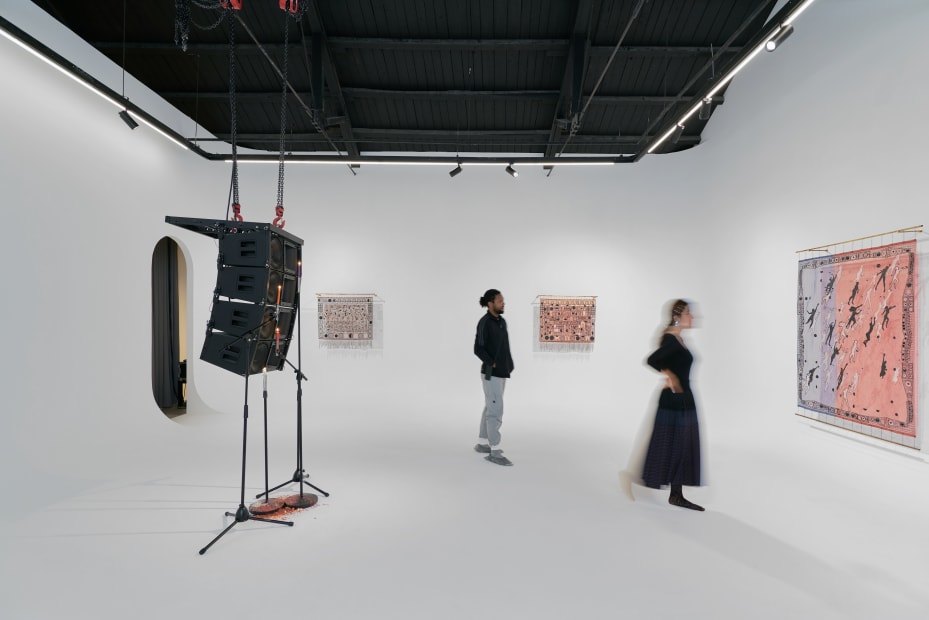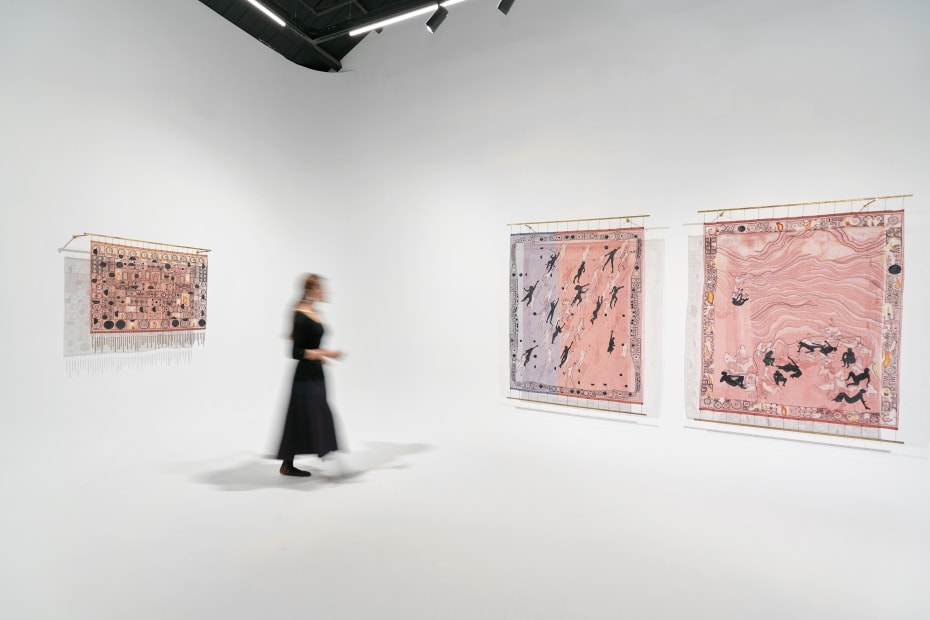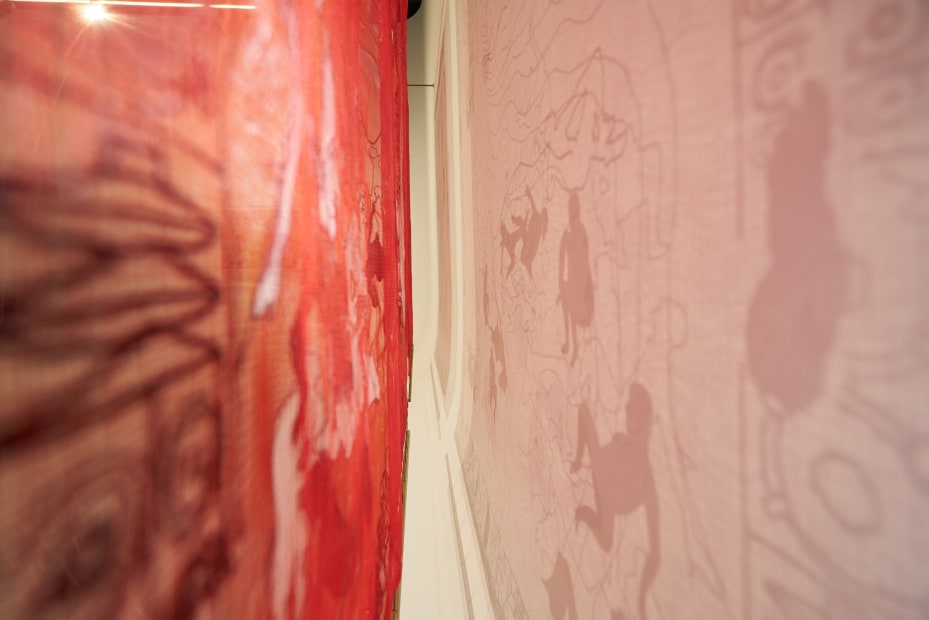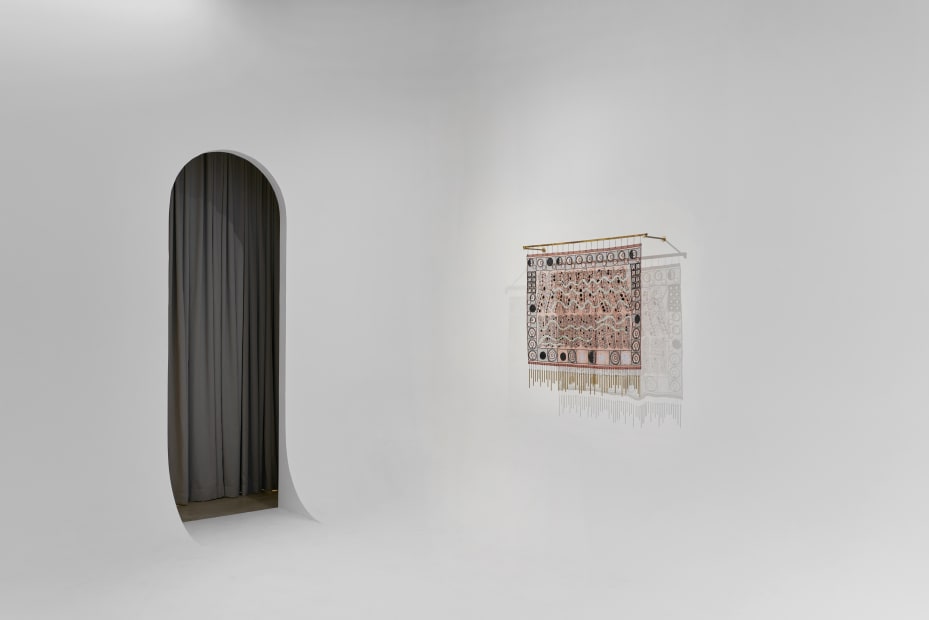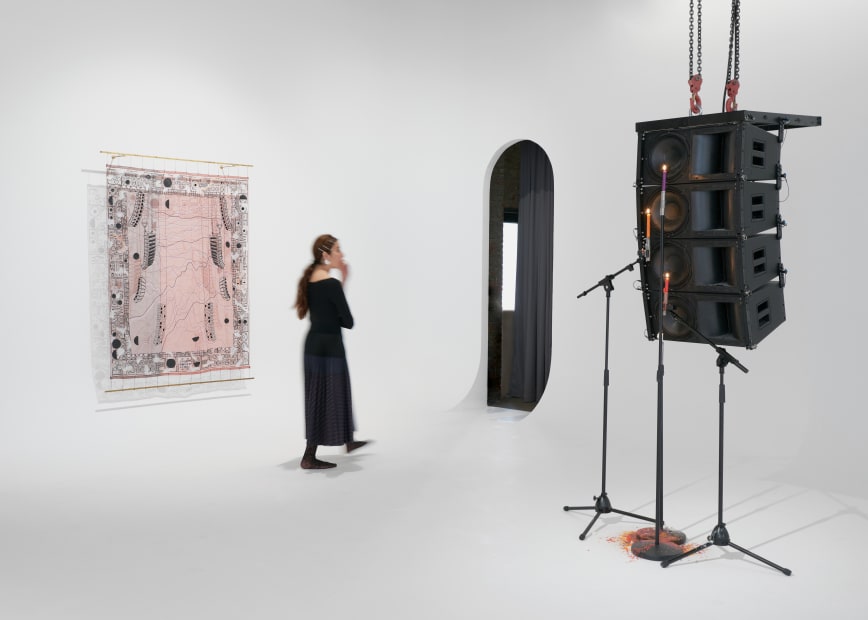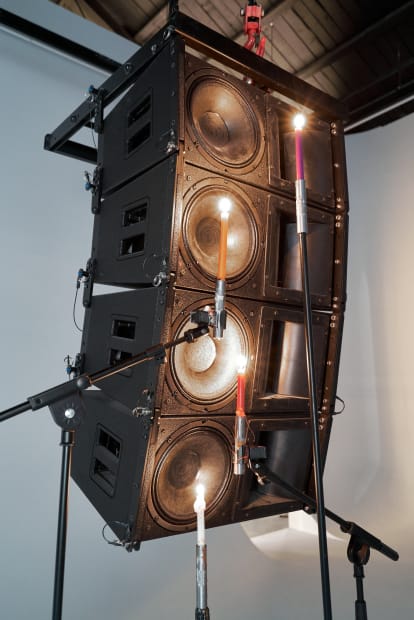Stairway to Seven: Vivian Caccuri
Hua International is pleased to present Stairway to Seven, Brazilian artist Vivian Caccuri’s first solo exhibition in China. Caccuri’s objects, installations, and performances investigate the physical, affective, and sociopolitical dimensions of sound, exploring how music and movement are transformed into embodied experience. Featuring new weavings, sculpture, and sound works, Stairway to Seven completely transforms Hua International’s Beijing location. The exhibition’s scenography draws upon the painted and physical architectures of Adolphe Appia and Giorgio di Chirico to elicit the dreamlike, emotional atmosphere that music creates. Riffing on the slender, rounded arches present in many of di Chirico’s paintings, Caccuri has eliminated hard angles and corners in the exhibition space by creating an “infinity cove” structure that imparts a sense of expansive, continuous space. Similar to the act of deeply listening to music, being enveloped by sound, Stairway to Seven becomes an immersive space that surrounds the viewer and implicates them in its choreography.
A central work in the exhibition—The Weeping Dancer—is a sound sculpture comprising a collection of suspended line array speakers before which lit candles flicker in microphone stands. Interested in the fact that these machines are never “solo,” but always used in the service of shows, spectacles, and stardom, Caccuri composed sounds and situations in collaboration with music producer Thiago Lanis where low-frequency sounds can be heard on their own. The deep rhythms emanating from the subwoofers and the circulation of air sets the candles’ flames in motion. Fascinated by the complex and entangled systems that surround the production and enjoyment of sound, Caccuri’s works often approach sound as a contemporary ritual.
In Chahal, an orderly accumulation of embroidered subwoofers and speakers surround a frenetic scene of clothed and unclothed figures dancing. Although each of these works exist independently as discrete art objects, they are nonetheless bound to a larger, collective social practice that indirectly fuels Caccuri’s reflections on sound. Many of the figures depicted in these weavings reference actual people that have attended parties the artist has thrown at her studio where hundreds of people gather to dance to popular DJs. These intense collectiveencounters have deeply informed Caccuri’s ongoing interest in exploring how sounds shapes social relations and how the shared experience of music can induce shifts in interpersonal relationships, leading to a loss of control and etiquette that makes interactions between people more fluid and liquid. Sound has the capacity to shape and order social connections, for both better and for worse. The dream space posited by Stairway to Seven, however, shows how “playing for one’s pleasure,” as the French sociologist Jacques Attali writes in Noise: The Political Economy of Music, “can create the conditions for new communication […] But it reaches far beyond that; it relates to the emergence of the free act, self-transcendence, the pleasure of being instead of having.”
Vivian Caccuri (b.1986 Brazil) lives and works in Rio de Janeiro. She has had solo exhibitions at Kunsthal 44Møen, Röda Sten Konsthall, and MAC Niterói, among others. Her work has additionally been included in the 32nd Bienal de Sao Paulo and the Kochi-Murzis Biennale, as well as group exhibitions at OMR, Mexco City; New Museum, New York; and the Dhaka Art Summit. In 2017, Caccuri was nominated for the Future Generation Art Prize, a prestigious bi-annual prize for young artists that includes an exhibition as an official collateral event of the Venice Biennale.

